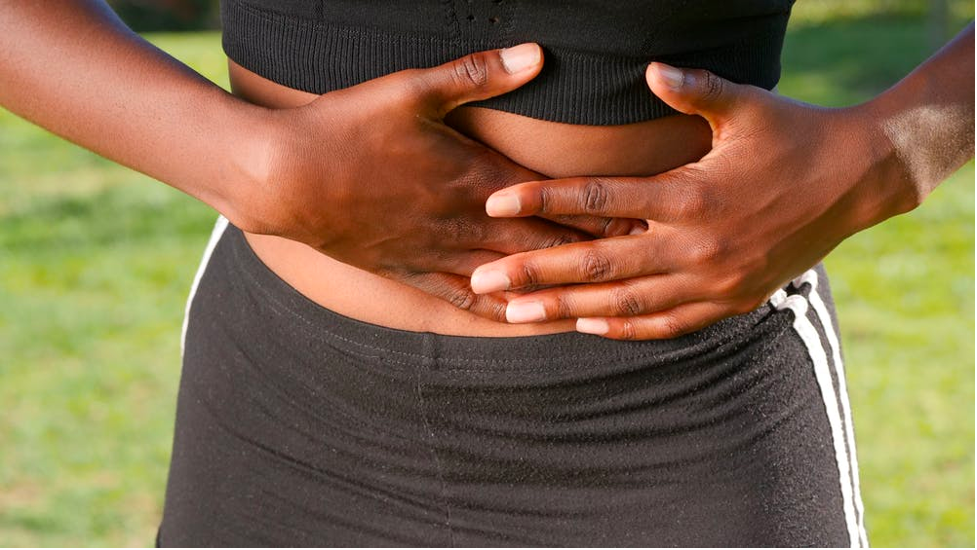Women who participate in high-impact activities may be at higher risk for pelvic floor dysfunction (PFD) such as urinary incontinence than women who participate in low-impact activities. Following childbirth, 30% of mothers report urinary incontinence and 10% report anal incontinence. Women are all too often advised to avoid activities such as high intensity interval training...
35% of postpartum women that return to running report musculoskeletal pain. A new research study has looked at biomechanical and musculoskeletal differences that exist in postpartum runners as compared to nulliparous (person who hasn’t given birth) runners. 9 women less than 2 years postpartum that run at least one day per week were compared to...
Suffering from Abdominal Bloating and Distension? Here’s How Physical Therapy Can Help.
February 17, 2022
Functional gastrointestinal disorders (FGID) are the most common gastrointestinal disorders in the general population, accounting for about 40% of GI problems seen by doctors and therapists. FGID are disorders of gut-brain interaction, meaning the normal motility of the intestines or the sensitivity of the nerves that innervate the intestines are impaired. However, upon imaging, there...
The speciality area of physical therapy, pelvic health, has really increased in popularity and demand in the last decade and with that, the area has grown and evolved in what it treats and how. Pelvic health physical therapy is so much more than just Kegel’s! Along with the evolution of pelvic health physical therapy, comes...
Why Kegels Are Not Enough
February 2, 2022
“Kegel’s” have become a household word in our country. You’ll hear the term talked about between friends and recommended by many medical providers. While it is a win that a pelvic health topic has become so popular, it is now time for the Kegel to get out of the limelight. There is a lot to...
Pelvic Physical Therapy Can Improve Fertility
January 20, 2022
In the United States, about 13% of women aged 15-49 year old will experience infertility. Infertility is described as the inability to get pregnant after 12 months of unprotected intercourse. For those experiencing infertility, it can be a long, emotionally and financially taxing journey. Each woman’s journey is unique which can make it hard to...
As more research about the novel coronavirus COVID-19 is developed, it is important to consider the effects of the disease on the pelvic floor and associated body systems and functions. The implications are both direct, i.e. affecting the cells of the bladder and small intestine, and indirect by disrupting function in the pulmonary system, in...
Women’s hormones and cycles are very sensitive and very complex to understand. Many high intensity or endurance athletes (but not all) will experience irregular or total loss of menstruation which can bring with it consequences to bone density, injury risk, and compromised fertility. Regarding athletic performance through a women’s cycle, a systematic review published in...
The scope of pelvic health physical therapy is wider than you may think. Pelvic physical therapy can help address a variety of gastrointestinal dysfunctions including: –constipation -IBS -bloating -abdominal pain -fecal incontinence -abdominophrenic dyssynergia -and more! One of the most researched and successfully treated GI dysfunctions in pelvic PT is constipation. Constipation is broken down...
In the United States, a standard medical event like a knee replacement warrants 1-2 nights in a hospital and a rehab timeline of 3-6 weeks with a course of frequent physical therapy in that timeline. In an even more common medical event, giving birth, what do women receive? One 6 week follow up appointment. Postpartum...


